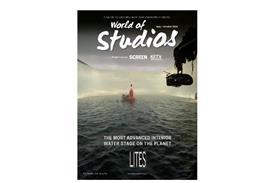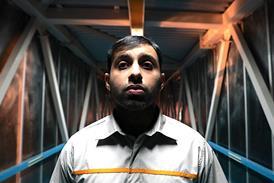United Arab Emirates based Front Row Entertainment is planning to releaseMichael Moore's Fahrenheit 9/11 inthe Middle East beginning on July 14 according to managing director GianlucaChacra.
The film will first be sent out on 18 screens in the UnitedArab Emirates and will be released in Syria (2 screens), Jordan (3 screens),Lebanon (10 screens) and Egypt (5 screens) six days later on July 20.
Other territories which Front Row will handle includeKuwait, Qatar, Oman, Bahrain and Saudi Arabia - however, all of the above countriesare awaiting censorship clearance.
Chacra said: "We're scaredmost of these countries will have a problem (with censorship approval) due tothe Saudi content in the film. Yet, with the Dubai Film Festival coming up, Ithink they'll want to show the world they're quite democratic and open-minded."
In terms of marketing the film, Front Row is getting a boostfrom organisations related to Hezbollah which have rung up from Lebanon to askif there is anything they can do to support the film. And although Chacra sayshe and his company feel strongly that Fahrenheitis not anti-American, but anti-Bush, "we can't go against these organisationsas they could strongly boycott the film in Lebanon and Syria."
As it is too early to have materials available from thefilm's sales agent Wild Bunch, its US producer Miramax or distributor LionsGate, Front Row created a teaser poster (pictured) but declined a free set ofmaterials from a printing press run by Pakistanis as this could be deemed as aninappropriate source - "cinemas in theUAE are often frequented by US Marines who come over from Iraq on theweekends."
Front Row, which also worked with Moore's
Having bought the film at Mifed in 2003, Chacra says he wasconcerned that the marketing would be a difficult ride but "at the end of theday you have to give the public what they want, you can't change the way theyshould perceive the film."
Given the movie going habits of the locals, Chacra says hethinks the film "is going to be big but I don't know how big. It could be ablockbuster." A quick round-up of the area shows that Syrians don't really goto the cinema, the Lebanese go to event movies - The Passion Of The Christ did well there - and the UAE isconsidered a core market. Chacra says people go to the movies three times aweek because - even at $9 a ticket - it's the cheapest form of entertainmentand since Muslims can't go out and drink, they tend to go to the cinema quiteoften. Still, Chacra says that the plan is not to market specifically to anyone group.



















No comments yet